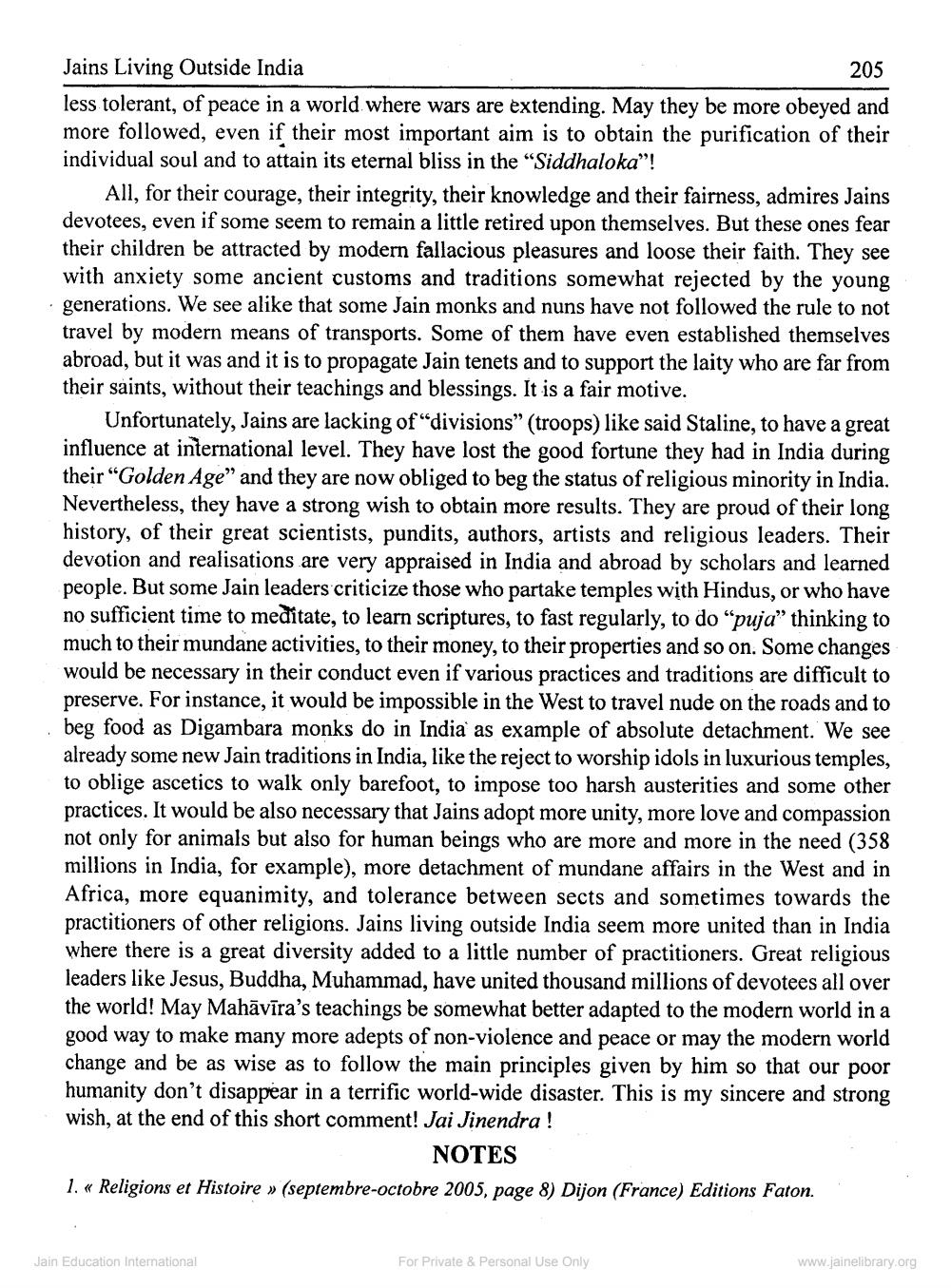________________
Jains Living Outside India
205 less tolerant, of peace in a world where wars are extending. May they be more obeyed and more followed, even if their most important aim is to obtain the purification of their individual soul and to attain its eternal bliss in the "Siddhaloka”!
All, for their courage, their integrity, their knowledge and their fairness, admires Jains devotees, even if some seem to remain a little retired upon themselves. But these ones fear their children be attracted by modern fallacious pleasures and loose their faith. They see with anxiety some ancient customs and traditions somewhat rejected by the young generations. We see alike that some Jain monks and nuns have not followed the rule to not travel by modern means of transports. Some of them have even established themselves abroad, but it was and it is to propagate Jain tenets and to support the laity who are far from their saints, without their teachings and blessings. It is a fair motive.
Unfortunately, Jains are lacking of "divisions" (troops) like said Staline, to have a great influence at international level. They have lost the good fortune they had in India during their “Golden Age" and they are now obliged to beg the status of religious minority in India. Nevertheless, they have a strong wish to obtain more results. They are proud of their long history, of their great scientists, pundits, authors, artists and religious leaders. Their devotion and realisations are very appraised in India and abroad by scholars and learned people. But some Jain leaders criticize those who partake temples with Hindus, or who have no sufficient time to meditate, to learn scriptures, to fast regularly, to do “puja" thinking to much to their mundane activities, to their money, to their properties and so on. Some changes would be necessary in their conduct even if various practices and traditions are difficult to preserve. For instance, it would be impossible in the West to travel nude on the roads and to beg food as Digambara monks do in India as example of absolute detachment. We see already some new Jain traditions in India, like the reject to worship idols in luxurious temples, to oblige ascetics to walk only barefoot, to impose too harsh austerities and some other practices. It would be also necessary that Jains adopt more unity, more love and compassion not only for animals but also for human beings who are more and more in the need (358 millions in India, for example), more detachment of mundane affairs in the West and in Africa, more equanimity, and tolerance between sects and sometimes towards the practitioners of other religions. Jains living outside India seem more united than in India where there is a great diversity added to a little number of practitioners. Great religious leaders like Jesus, Buddha, Muhammad, have united thousand millions of devotees all over the world! May Mahāvīra's teachings be somewhat better adapted to the modern world in a good way to make many more adepts of non-violence and peace or may the modern world change and be as wise as to follow the main principles given by him so that our poor humanity don't disappear in a terrific world-wide disaster. This is my sincere and strong wish, at the end of this short comment! Jai Jinendra!
NOTES 1. « Religions et Histoire » (septembre-octobre 2005, page 8) Dijon (France) Editions Faton.
Jain Education International
For Private & Personal Use Only
www.jainelibrary.org




